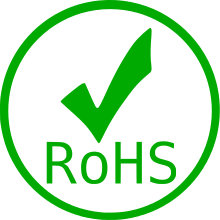services
RoHS testing
In order to meet the needs of customers related to documenting that the manufactured products meet the legal requirements of the RoHS Directive, the Analytical Chemistry Center offers accredited methods for testing the content of hazardous substances in electrical and electronic equipment [screening tests and quantitative determination of the content of hazardous substances such as lead, mercury, cadmium, hexavalent chromium, polybrominated biphenyls (PBB), polybrominated diphenyl ethers (PBDE) and phthalates (DBP, BBP, DEHP, DIBP)], using highly specialized measuring equipment and research methodologies specified in the harmonized standard EN 62321.
Directive (EU) 2017/2102 of the European Parliament and of the Council of 15 November 2017, known as the RoHS III Directive, sets out rules on the restriction of the use of certain hazardous substances in electrical and electronic equipment (EEE) in order to contribute to better protection of human health and the environment, including environmentally friendly recovery and disposal of used EEE. The maximum permissible concentrations of hazardous elements/substances in a homogeneous material covered by the restriction, established by decision of the Commission of the European Communities, are:
- Cadmium, Cd – 0.01%,
- Lead, Pb – 0.1%,
- Mercury, Hg – 0.1%,
- Hexavalent chromium, Cr(VI) – 0.1%,
- Polybrominated biphenyls, PBB – 0.1%,
- Polybrominated diphenyl ethers, PBDE – 0.1%,
- Di-2-ethylhexyl phthalate, DEHP – 0.1%,
- Butyl benzyl phthalate, BBP – 0.1%,
- Dibutyl phthalate, DBP – 0.1%,
- Diisobutyl phthalate, DIBP – 0.1%.
Since 1 July 2006, every new product covered by the RoHS Directive introduced to the European market must meet the requirements of the directive. This applies to products imported into the EU and products intended for sale manufactured in the EU. This imposes on manufacturers, importers and distributors of EEE equipment the obligation to control the level of toxic substances in new products introduced to the EU market. Evidence confirming compliance with RoHS requirements includes, for example, product test reports and declarations of conformity issued on their basis, which may additionally be confirmed by a certificate.

Contact us